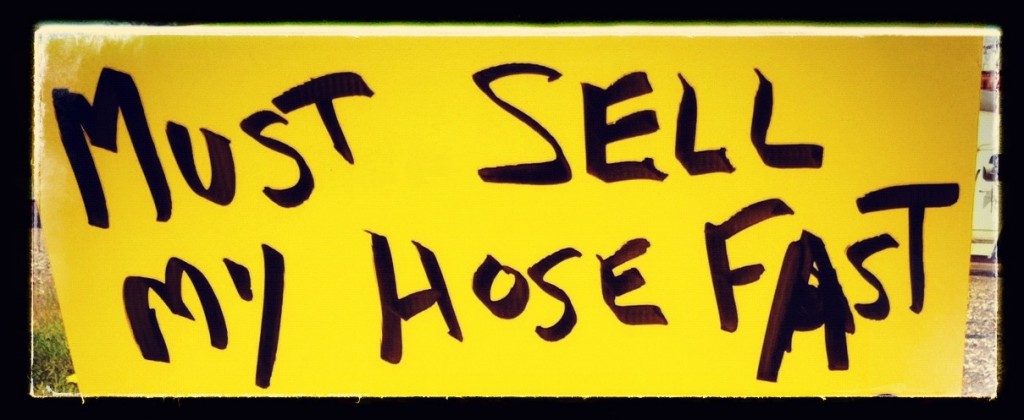Being Both Genuine & Professional: Striking a Balance
 Confession: This post was inspired by my desire to use this picture. But I do have a point to make.
Confession: This post was inspired by my desire to use this picture. But I do have a point to make.
I spent many years working in hard-news journalism before finding my way to the association and non-profit communities. So I am steeped in a tradition that hails and rewards – perhaps, sometimes, even worships – accuracy. The storied motto of the City News Bureau of Chicago, where I worked more than a dozen years, was, “If your mother says she loves you, check it out.” We were serious about attribution and fact-checking and accuracy in every form.
From there, I made my way into Internet and digital media work, and into the non-profit and association world. At every stop along the way, I have worked with dedicated professionals who have taken pride in doing good work and publishing accurate, high-quality information.
That’s a good thing. But it can be taken too far. When? When it actually gets in the way of delivering information.
That sounds contradictory. Accurate information is good information, and I’d be the last person to say otherwise. But especially in the digital world, we need to balance perfection against timeliness and authenticity. We need to remember that in a world informed and influenced by social media and a 24/7 news cycle, it can sometimes be more important to get your message out than to wordsmith it perfectly.
What that means is that sometimes you’ll publish something that erroneously uses the word “that” instead of “which,” or a sentence that includes a comma splice (my personal pet peeve; yes, it is a real term for a grammatical error; look it up). Sometimes, horror of horrors, it will even mean that a typo gets through.
Get over it.
Don’t stop copy editing, and don’t stop worrying about correct grammar and spelling. But don’t beat yourself up if a mistake gets through. And by all means, don’t fail to get information posted in a timely manner because you’re too afraid it might contain a tiny error.
 The picture above is the kind of error you want to avoid at all costs: The kind that makes you look foolish or confuses your message. Here’s another to the right. Is there no porta-potty, but dumping is allowed? Or is it porta-potty dumping that is disallowed? Whatever the rule, does it apply only to women? A little punctuation, a copy editor’s attention to detail would have helped make this particular roadside rest area signage more clear. (Though, admittedly, I would have missed out on a good laugh.) One thing I learned in an early copy editing class in journalism school was that it’s important to have a dirty mind – because if you don’t notice a double entendre in the writing, you can be darned sure that someone else will. That’s the kind of mistake you want to avoid making.
The picture above is the kind of error you want to avoid at all costs: The kind that makes you look foolish or confuses your message. Here’s another to the right. Is there no porta-potty, but dumping is allowed? Or is it porta-potty dumping that is disallowed? Whatever the rule, does it apply only to women? A little punctuation, a copy editor’s attention to detail would have helped make this particular roadside rest area signage more clear. (Though, admittedly, I would have missed out on a good laugh.) One thing I learned in an early copy editing class in journalism school was that it’s important to have a dirty mind – because if you don’t notice a double entendre in the writing, you can be darned sure that someone else will. That’s the kind of mistake you want to avoid making.
So those are the details that matter most. If the smaller errors occasionally get through, it’s not the end of the world. You should strive to avoid all mistakes, but don’t let yourself be paralyzed by the drive for perfection. And remember that in an online world, you can always go back and fix a typo if necessary.
